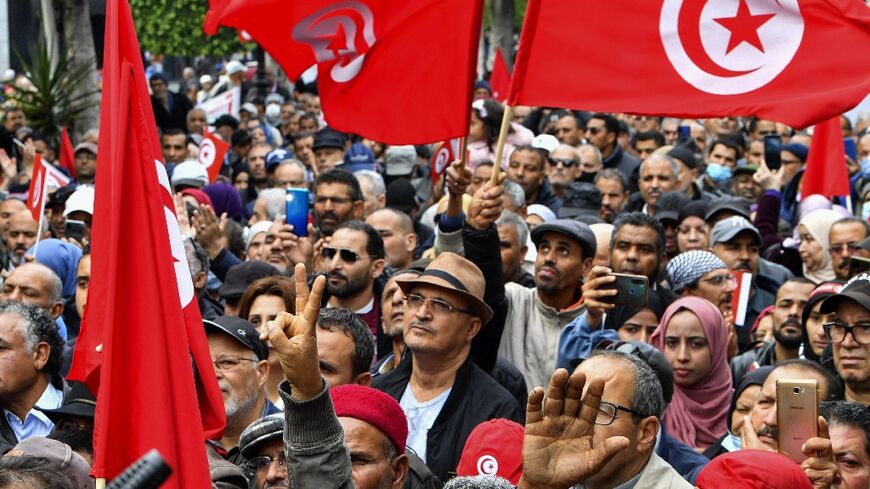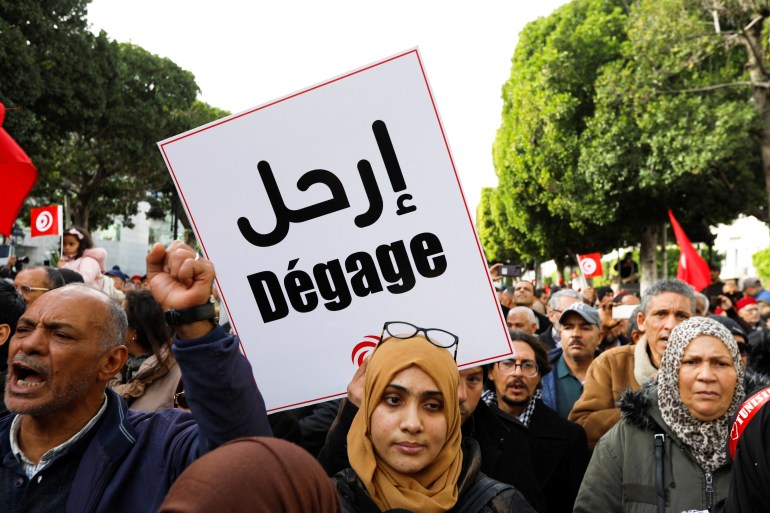Tunisians have begun voting in parliamentary elections, but with a general sense of apathy among many voters and an opposition boycott, turnout has been poor. Saturday’s vote is the first parliamentary vote since 2019, and the first since President Kais Saied dissolved parliament last year. The Associated Press has the story:
Tunisia is voting amid economic, democracy vows
Newslooks- TUNIS, Tunisia (AP)
Tunisians are voting to elect a new parliament on Saturday, to the backdrop of a soaring cost-of-living crisis and concerns of democracy backsliding in the North African country — the cradle of Arab Spring protests a decade ago.
Opposition parties — including the Salvation Front coalition that the popular Ennahda party is part of — are boycotting the polls because they say the vote is part of President Kais Saied’s efforts to consolidate power. The decision to boycott will likely lead to the next legislature being subservient to the president, whom critics accuse of authoritarian drift.
Polling stations opened at 8 a.m. (0700 GMT) and are scheduled to close at 6 p.m. (1700 GMT).

Parliament last met in July 2021. Saied then froze the legislature and dismissed his government after years of political deadlock and economic stagnation. He dissolved parliament in March. Since then, Saied, who was elected in 2019 and still enjoys the backing of more than half of the electorate, has also curbed the independence of the judiciary and weakened parliament’s powers.
In a referendum in July, Tunisians approved a constitution that hands broad executive powers to the president. Saied, who spearheaded the project and wrote the text himself, made full use of the mandate in September, changing the electoral law to diminish the role of political parties.

The new law reduces the number of member of the lower house of parliament from 217 to 161, who are now to be elected directly instead of via a party list. And lawmakers who “do not fulfil their roles” can be removed if 10% of their constituents lodge a formal request.
Critics say the electoral law reforms have hit women particularly hard. Only 127 women are among the 1,055 candidates running in Saturday’s election.
Saied’s critics accuse him of endangering the democratic process. But many others believe that scrapping the party lists puts individuals ahead of political parties and will improve elected officials’ accountability. They are exasperated with political elites, welcome their increasingly autocratic president’s political reforms and see the vote for a new parliament as a chance to solve their dire economic crisis.

The voter turnout appeared lower during the morning hours, although Associated Press reporters saw people queuing outside several voting station around the capital, Tunis. President Saied and his wife, Ichraf Chebil, cast their ballots in Ennasr, an upscale suburb north of Tunis on Saturday morning.
Saied called on citizens to vote “with your hearts and your conscience to reclaim your legitimate rights to justice and freedom.” He also warned against supporting those he claimed had abused power and “depleted the country of valuable resources after bribing people to elect them under the old electoral law.”
The Tunisian government is deeply indebted and chronically short of funds to pay for badly needed food and energy. Food prices have soared over the past months and shortages of basic staples like sugar, vegetable oil, rice, milk and even bottled water have threatened to turn simmering discontent into larger turmoil.

Many believe their country’s decade-old democratic revolution has failed, a decade after Tunisia was the only nation to emerge from the Arab Spring protests with a democratic government.
Hédia Sekhiri, a retired private sector worker, said she came out to vote to set an example for young people. “It’s my duty as a citizen … to build a better future for our country,” Sekhiri said.
Amor Hamad, a 58-year-old engineer in Tunis, said he hopes his vote will “contribute to the evolution of the country in the right direction and put an end to 10 years of disastrous leadership by successive governments since the 2011 revolution.”

The vote comes on the 12th anniversary of the event that sparked the Arab Spring — when a Tunisian fruit vendor, Mohamed Bouazizi, set himself on fire because of the dire economic situation under the long-time strongman rule of Zine El Abidine Ben Ali. Bouazizi died weeks later. His act of desperation prompted protests that led to the dictator’s ouster and provoked similar uprisings around the Arab world.







